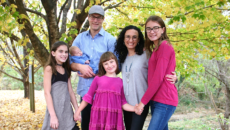The list of documents looks daunting; just take them one by one. You can make the process easier if you get the correct documents on the first try—nothing is more frustrating than having your home study held up because you have to chase yet another bit of paper. Before you start, ask your social worker exactly what version of each document you need, and whether they must be originals, certified, notarized, or apostilled. Make photocopies of every document before sending it anywhere, and always, always, use registered mail, FedEx, or some other trackable system.
- Multiply: If you’re planning an international adoption, get THREE originals of every document on this list. You’ll need one set later for the dossier that will be submitted to the foreign government, and another when you petition the U.S. government for the child’s visa. If you will be readopting your child later in the U.S., get FOUR; you’ll need a set to submit to your local court.
- Notarize: To notarize means to certify that the document and any signatures on it are true. Notaries are licensed by the state; you can find one at notarypublic.com, but our families recommend that, when you’re starting your home study, you locate a friendly notary at a local institution (try your town hall, bank, library, and doctor’s office), introduce yourself, and explain your needs. Many will offer to notarize all your adoption documents for one nominal fee.
- Apostille: For an international adoption, many documents will need to be apostilled, a kind of super-notarization that must be done by a secretary of state, and involves fancy gold stamps and seals. If you are working through an adoption agency, they will likely take care of the apostille process. If you need to do it yourself, call your local secretary of state and ask about the process.
What Documents Do I Need?
- Birth certificates: For the adoptive parents and any existing children. Ask your social worker if you need “long-form” or “short-form” certificates. Long-form (also known as “certified photocopy” or “book copy” birth certificates) are exact photocopies of the original birth record that was prepared by the hospital or attending physician at the time of the child’s birth and usually include parents’ information (address of residence, race, birthplace, date of birth, etc.), additional information on the child’s birthplace, and information about the doctors who assisted in the birth of the child. Short-form birth certificates (also known as “computer certification,” “certification of birth” or “certificate of birth registration”) have more limited information. Baptismal certificates and hospital souvenir birth certificates (the cute ones with the little footprints) are not acceptable.
- Tax returns: Most agencies will want returns for at least the past two years. Some want just the front page.
- Marriage certificates: Ask your social worker whether you need a marriage certificate, or the certified marriage license.
- Divorce decrees: For either parent, if applicable.
Depending on your social worker or agency, you may also need:
- Paycheck stubs
- W2 Forms
- Bank statements
- Copies of mortgage or lease
- Life insurance policies
- Health insurance policy: You may need to show that the adopted child will be insured. Just make a printout or a copy of the page that says dependents are covered; by law, insurance agencies in the U.S. must treat an adopted child exactly as they would a biological child.
- A letter from your doctor: Ask your doctor to include the phrases “normal life expectancy” and “able to parent an adopted child.”
- A letter from your existing children’s pediatrician, if applicable: Ask the pediatrician to note that your children are up-to-date with their checkups and vaccinations.
- Letters of reference: Ask your social worker if your references should emphasize any particular aspect of your personality or life—church attendance, work habits, etc.






